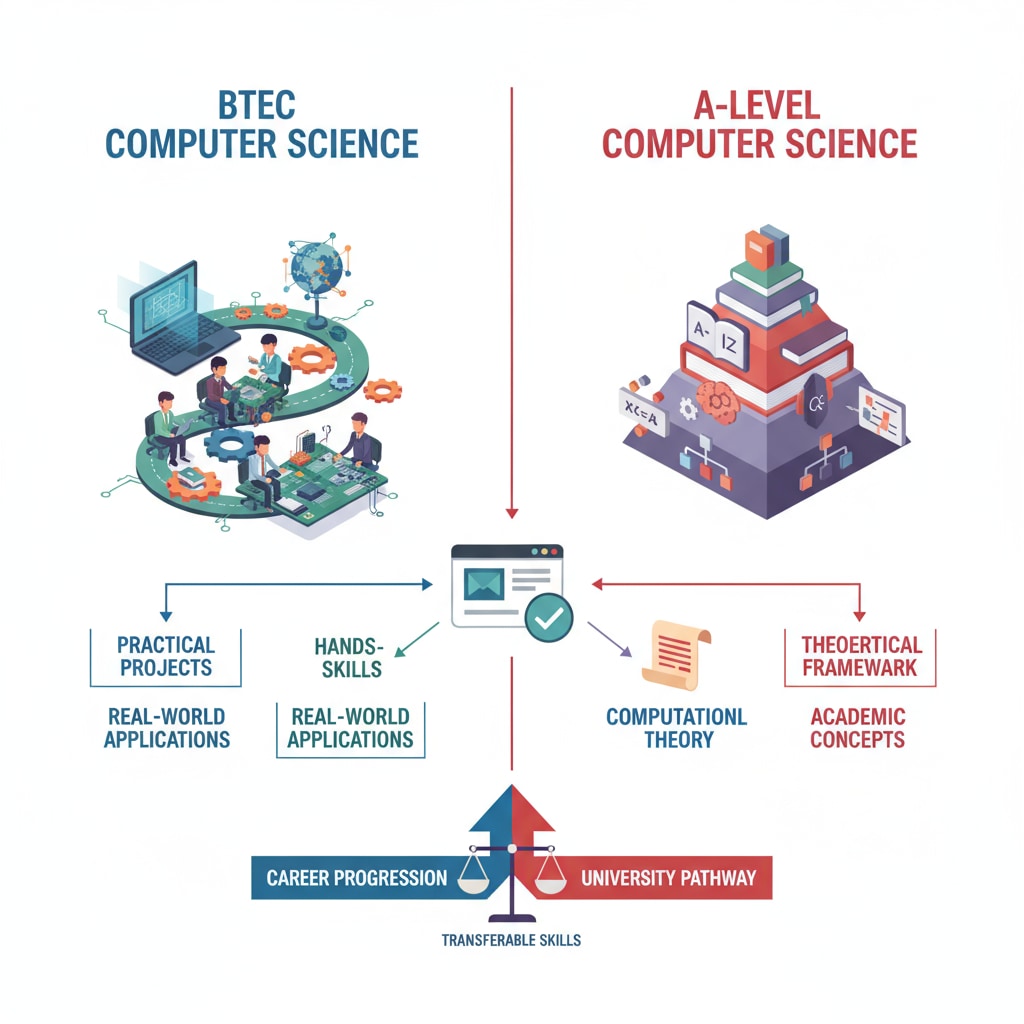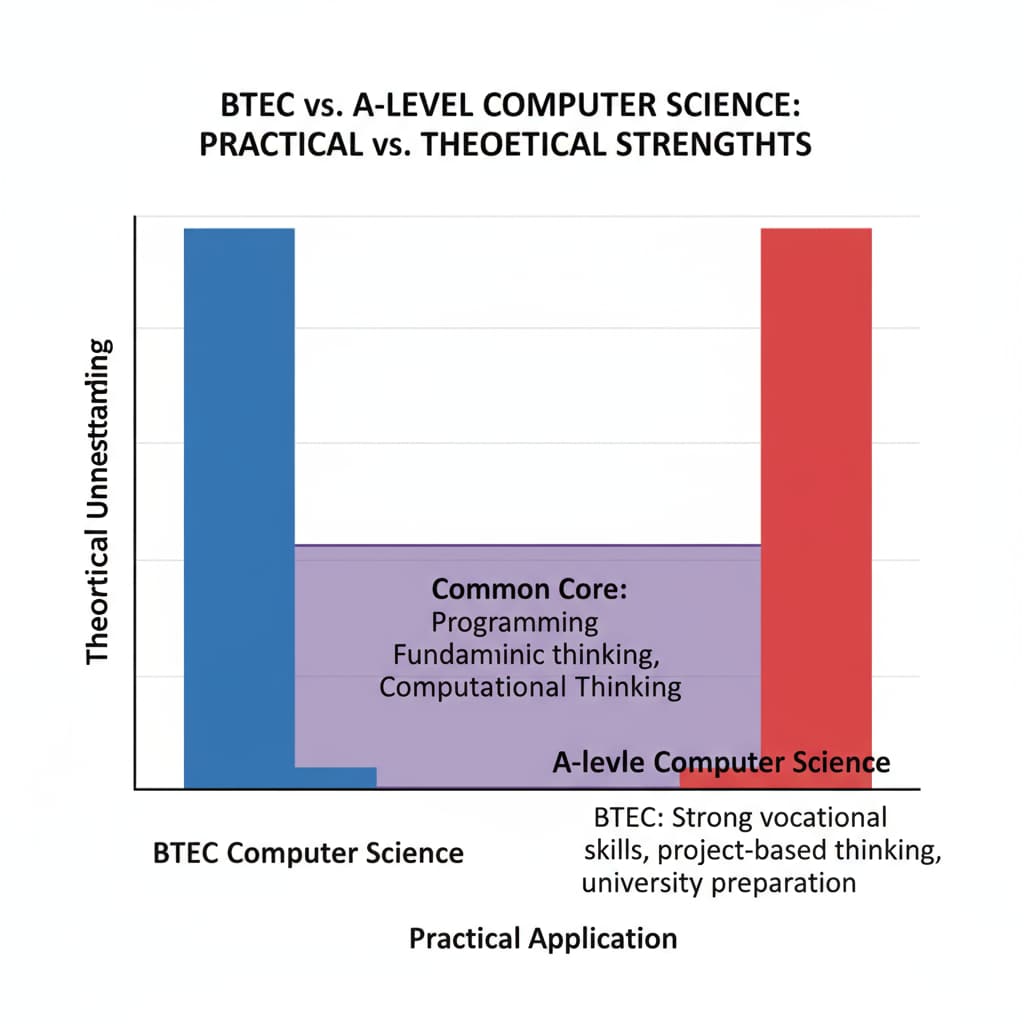When it comes to higher education applications and career planning, students interested in computer science often face a crucial decision: choosing between BTEC Computer Science qualifications and A-levels. This choice can significantly impact their future academic and professional paths. Let’s delve into the details of these two options to understand their competitiveness.

The Structure and Focus of BTEC Computer Science
BTEC Computer Science at Level 3 is designed to provide students with a practical and vocational approach to the subject. The curriculum emphasizes hands-on skills, project work, and real-world applications. For example, students might work on developing software applications, managing databases, or setting up computer networks. This practical focus helps students gain in-depth knowledge and skills directly applicable to the industry. According to Edexcel’s official website, the BTEC Computer Science course aims to prepare students for employment or further study in related fields.
The Rigor and Academic Depth of A-level Computer Science
A-level Computer Science, on the other hand, has a more academic and theoretical foundation. It covers a wide range of topics such as programming languages, algorithms, and computer architecture. Students are required to have a strong understanding of mathematical concepts and logical thinking. The exams are often more theoretical, testing students’ knowledge and understanding of the subject matter. As stated on AQA’s official page, A-level Computer Science helps students develop critical thinking and problem-solving abilities essential for higher education.

Competiveness in University Applications
In university applications, both BTEC and A-level have their own advantages. Some universities highly value the practical skills that BTEC students bring. They believe these students can quickly adapt to the practical aspects of university projects. However, some more traditional universities may still prefer A-level students due to their stronger academic background. It’s important for students to research the entry requirements of their target universities. For instance, some computer science courses may require a combination of both practical and theoretical skills, making either option viable depending on how the student presents their capabilities.
Career Prospects and Development
In terms of career prospects, BTEC Computer Science graduates may find it easier to enter the job market directly as they already have practical skills. They can start in roles such as junior software developers, network technicians, or database administrators. A-level graduates, with their strong academic foundation, may have an edge when it comes to pursuing more research-oriented or advanced technical roles. However, continuous learning and upskilling are important for both groups to stay competitive in the fast-evolving field of computer science.
Readability guidance: As we’ve seen, both BTEC Computer Science and A-level have their own merits in different aspects of higher education applications and career planning. Students should carefully consider their learning styles, interests, and long-term goals before making a decision. By understanding the differences and competitiveness of these two paths, they can make an informed choice and set themselves on the right track for a successful future in computer science.


